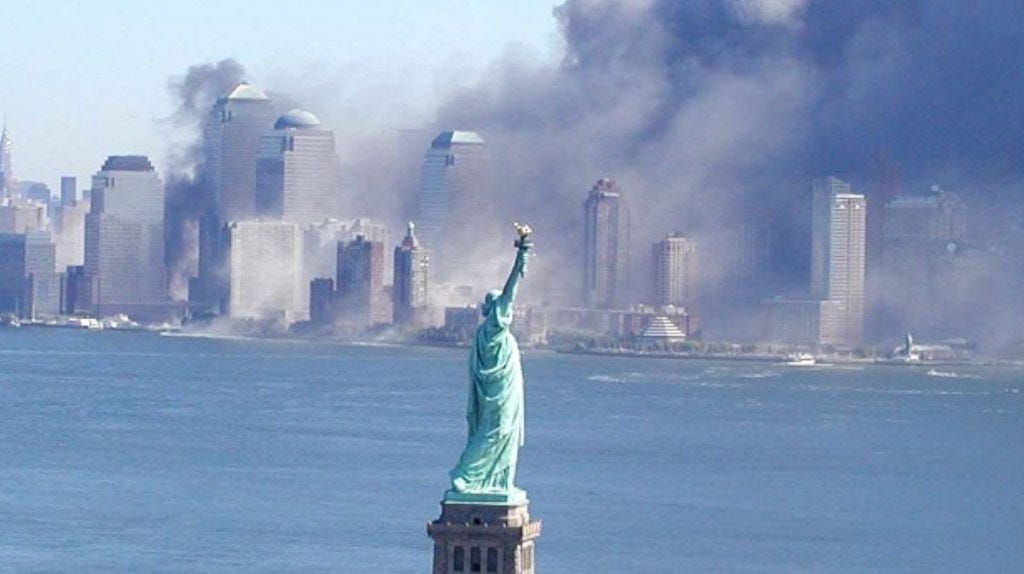Imprisoned With Zero Charges
In the aftermath of the 9/11 attacks on the USA, Australia enacted a multitude of counter-terrorism laws ostensibly intended to bolster national security and deter acts of terrorism. However, the unintended consequences of those laws pose significant threats to fundamental legal rights, including the right to a fair trial and the protection of habeas corpus.
From 2001 to 2021 a total of 92 pieces of counter-terrorism legislation were pushed through Parliament, many without proper debate or scrutiny. These laws threaten fundamental rights such as free speech and freedom from arbitrary detention, and have expanded in scope from targeting terrorism to targeting most serious criminal crimes. Their impact affects all Australians, not just suspected terrorists.
They include restrictions on freedom of speech through sedition offences; detention and questioning of Australians not suspected of any crime; control orders enabling house arrest for up to a year; extended periods of detention without charge; warrantless searches of private property by police; and secretive trials.
92 pieces of counter-terrorism legislation were pushed through Parliament
The absence of human rights safeguards such as a bill of rights might offer has provided fertile ground for the enactment of especially disproportionate laws in Australia. As a result, our ostensible “anti-terrorism” laws may present far greater threat to the civil liberties of Australians than anything Americans face from the USA’s infamous Patriot Act.
What is habeas corpus?
Habeas corpus is a fundamental right that protects individuals from arbitrary or unlawful detention by the government. It is the right to challenge the legal justification of any detention before a court of law. If the judge finds the detention to be unlawful, the individual must be released.
The historical roots of habeas corpus can be traced back to 13th Century medieval England; a period where the Monarchy and Government had powers to detain individuals without clear legal justification, which predictably resulted in frequent arbitrary and indefinite detentions.
A shift in legal paradigm
The War on Terror marked a significant shift in the legal landscape. Traditional criminal law focused on punishing individuals for actual crimes, based on material evidence. The new focus is on preventing potential crimes, based on often undisclosed suspicions.
Preventative detention, for instance, allows the Australian Federal Police to question anybody without charge, simply by deeming the person a ‘terrorism suspect’. The practice of ‘preventative detention’ contravenes key principles of international law, including Article 9(1) of the International Covenant on Civil and Political Rights (ICCPR).
So, while the principle of habeas corpus exists on paper in Australia, its strength and spirit are dead.
So, how does this affect non-terrorists?
The Australian Government has armed itself with extraordinary powers that have reshaped the very essence of justice. The Government and its agents gave themselves the ability to search without warrant, detain without charge, and declare organisations as threats to national security without substantive proof. If that was not scary enough, what remains deeply concerning is the ambiguity surrounding the definitions of ‘terrorism’ and ‘threat to national security’.
These laws threaten fundamental rights
Under the legislation, political labels can be applied to activities that, if genuinely criminal, would have fallen under the purview of existing criminal laws. These criminal laws come with vital safeguards that ensure individuals have the right to receive a fair trial and are presumed innocent until proven guilty beyond a reasonable doubt.
Counter-terrorism laws erode these fundamental legal protections, placing the burden of proof on the accused, effectively reversing the principle of “innocent until proven guilty.”
The principle of habeas corpus exists on paper in Australia, its strength and spirit are dead.
Recent global events serve as clear reminders of the dangers associated with politicising alleged criminal activities. The Canadian trucker freedom convoy was portrayed by the media and the Canadian government as an occupation, despite it being a protest against Covid restrictions. The January 6th protests in the USA were labelled an insurrection, despite having few of the elements of a genuine insurrection. And Covid-related freedom protests in Australia were stigmatised as right-wing extremism. Such hasty and politically charged characterisations only underscore the perilous implications of these counter-terrorism laws and their potential misuse.
At the core of this issue lies the power vested in the government to declare individuals or groups as threats to national security, bypassing cherished legal safeguards such as habeas corpus, and unleashing an arsenal of undemocratic laws upon those who are accused. This unchecked authority fundamentally challenges the principles upon which our democratic society is based.
bypassing cherished legal safeguards such as habeas corpus
It is worth considering the words of Lord Hoffman when he delivered his dissenting opinion on counter-terrorism legislation in the United Kingdom: “The real threat to the life of the nation, in the sense of a people living in accordance with its traditional laws and political values, comes not from terrorism but from laws such as these.”
These words should resonate with every citizen, as they highlight the dire need for a careful and considered re-evaluation of the balance between national security and the preservation of our fundamental legal rights, ensuring that justice, transparency, and accountability are not casualties in the fight against terrorism.
The post Imprisoned With Zero Charges appeared first on Liberty Itch.





